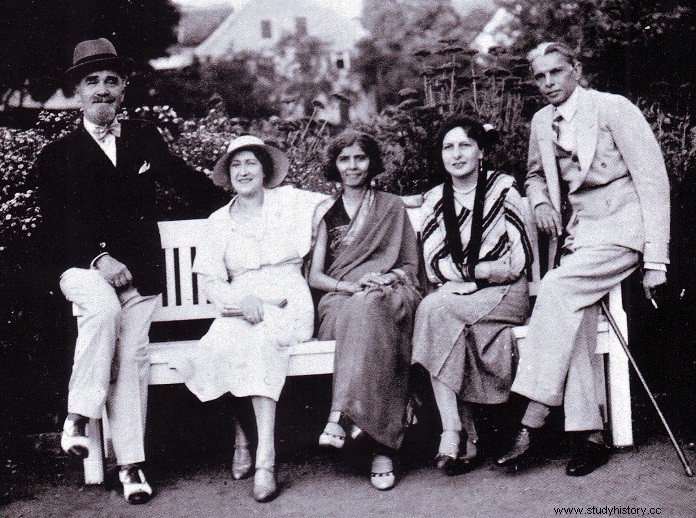
Virendra Kumar Barnwal has written- 'The League's participation in the Interim Government was in fact an extension of Jinnah's civil war strategy at a very important stage.
When the Muslim League joined the Interim Government, the Viceroy Lord Wavell advised the Congress that the finance ministry should remain with the Congress and Sardar Patel should become its minister. Because they will need this ministry step by step to run the government.
Patel had understood Jinnah and the entire Muslim League very well by then, so he thought it better to give the Finance Ministry to the Muslim League so that the Home Ministry and the princely ministries could be kept with him and these ministries could be used to make the indigenous princely states in India at the time of independence. to be kept.
Muslim League leader Liaquat Ali Khan was made finance minister in the interim government but Liaquat Ali Khan was not happy with the finance ministry. He wanted the Home Ministry for himself. Chaudhry Muhammad Ali, explained to Liaquat Ali that this verse was extremely important. He should make such a budget that the crorepatis who help the Congress are exhausted.
Chaudhry Mohammad Ali was an officer of the Indian Audit and Accounts Service. He received education in economics and law from London. On the suggestion of Chaudhary, Liaquat Ali accepted the proposal to become the Finance Minister and started raising objections on the items of expenditure. By doing this the Muslim League, despite being in government, wanted to stall the government.
Maulana Abul Kalam Azad has written- 'The Muslim League members of the cabinet used to obstruct the work of the government at every step. He was in the government and still against the government. In fact they were in a position to sabotage our every move. The first budget presented by Liaquat Ali Khan was a new setback for the Congress. The declared policy of the Congress was that economic inequalities should be eliminated and capitalist society should be gradually replaced by socialist method.
Jawaharlal Nehru and I had also spoken many times on the profits made by merchants and industrialists during the war. It was also known to all that a large part of this income was hidden from income tax. There was a need to take strict steps by the Government of India for the recovery of income tax. In the budget presented by Liaquat Ali, he imposed such heavy taxes on industry and trade that industrialists and businessmen began to tremble.
This would have caused permanent damage not only to the Congress but to the trade and industry of the country. Liaquat Ali in the budget speech proposed to set up a commission to investigate the allegations of non-payment of income tax on industrialists and businessmen and to recover old income tax. He declared that these proposals have been prepared on the basis of the Congress manifesto.
Congress leaders were not in a position to say anything openly in favor of industrialists and businessmen. Liaquat Ali acted very smartly. He had already obtained the approval of the cabinet that the budget should be based on communist policies. He did not give any detailed information to the cabinet regarding taxes etc. When he presented the budget, the Congress leaders were stunned. Rajagopalachari and Sardar Patel opposed this budget with great anger.'
As finance minister, Liaquat Ali Khan got the right to intervene in every department of the government. He either declined or modified each offer. He crippled the cabinet with his activities. The ministers could not even hire a peon without the permission of Liaquat Ali Khan.
Liaquat Ali Khan put the Congress ministers in such confusion that they became devoid of duty. Ghanshyamdas Birla tried a lot to convince Liaquat Ali Khan to bridge the gap between Gandhiji and Jinnah, but to no avail. Finally, on the request of the Congress, the Viceroy spoke to Liaquat Ali Khan and got the rates of taxes reduced considerably.
To remove the growing bitterness between the Congress and the Muslim League, a conference was convened in London on 3-6 December 1946 in which the British Prime Minister Mr. Attlee, Viceroy Lord Wavell, Congress President Jawaharlal Nehru, Muslim League President Muhammad Ali Jinnah participated. This conference was also unable to resolve the differences between the Congress and the Muslim League. The future of India was fully visible to the British government in this conference. The British government has clearly indicated that now it will move towards the partition of India.
